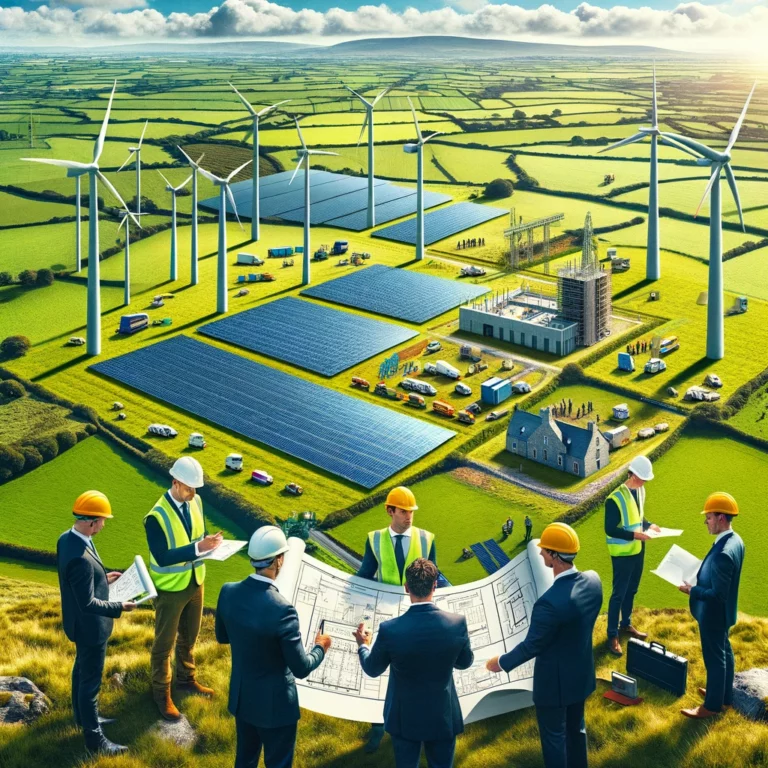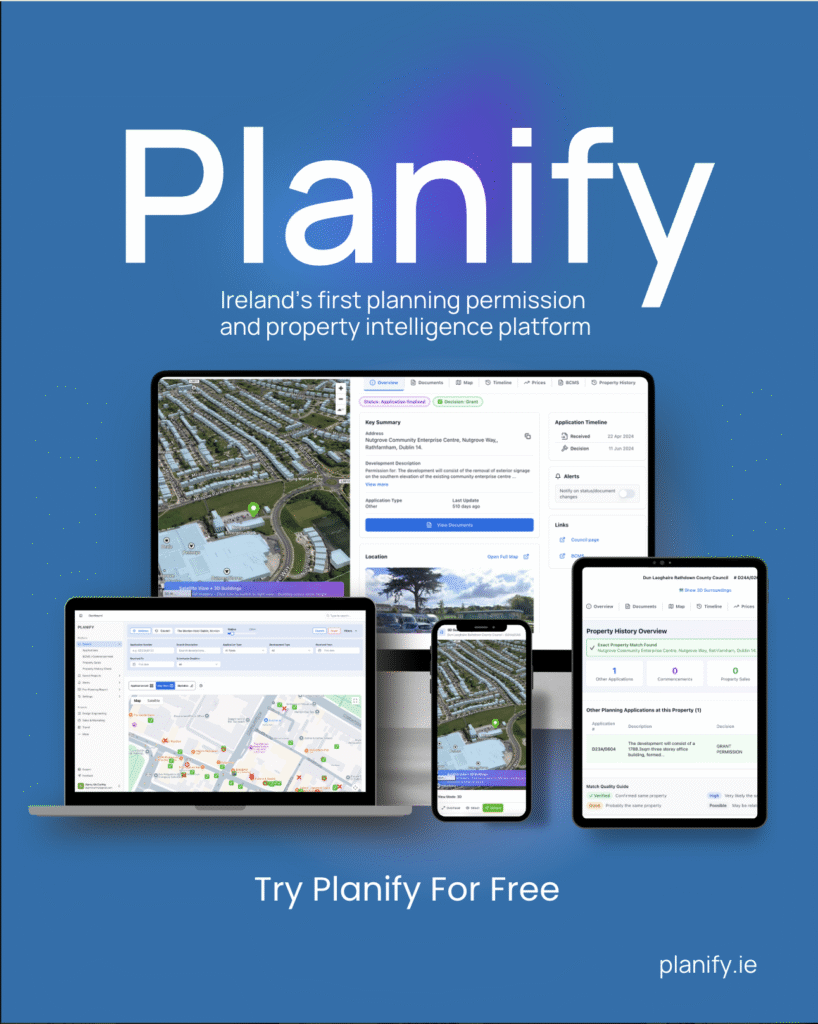Planning Permission For Sustainable Energy Projects in Ireland

Introduction
Planning permission for sustainable energy projects is a critical step towards achieving a greener, more sustainable future. As the world shifts towards renewable energy sources to combat climate change, understanding the intricacies of obtaining planning permission for such projects becomes paramount. This guide will delve into everything involved in the planning permission process for sustainable energy projects, including solar farms, wind turbines, and renewable energy housing developments. It will cover the basics of planning permission, key considerations, and the role of sustainability in planning policies.
Understanding Planning Permission for Sustainable Energy Projects
Planning Permission Basics: Planning permission is a legal requirement for developing land or buildings in Ireland. It ensures that developments are suitable for their location, considering factors like environmental impact, aesthetics, and community needs. For sustainable energy projects, planning permission is crucial to balance the need for renewable energy sources with the preservation of local environments and communities.
Types of Sustainable Energy Projects: Common sustainable energy projects requiring planning permission include solar farms, wind turbines, and renewable energy housing developments. Each has unique considerations, from the visual impact of wind turbines to the land use for solar farms and the integration of renewable technologies in housing developments.
Key Considerations in the Planning Process
- Environmental Impact Assessments (EIA): Many sustainable energy projects, especially large-scale developments, require an EIA. This assessment evaluates the potential environmental impacts of the project, including effects on biodiversity, water resources, and local ecosystems. The EIA process is integral to ensuring that sustainable energy projects truly benefit the environment without causing undue harm.
- Site Selection: The location of a sustainable energy project is a critical factor in the planning process. Considerations include proximity to protected areas, visual impact, and access to the energy grid. For wind turbines, factors like wind speed and turbulence are also crucial, while solar farms require areas with high solar irradiance.
- Community Engagement and Public Consultation: Engaging with local communities and stakeholders is essential for the success of sustainable energy projects. Public consultations allow developers to present their plans, address concerns, and incorporate community feedback. Effective engagement can lead to broader support for the project and smoother planning approval.
- Sustainability and Planning Policies: Sustainable energy projects align with broader goals for environmental sustainability and carbon reduction. Many local and national planning policies now emphasize the importance of renewable energy in combating climate change. Demonstrating how a project contributes to these goals can be a significant factor in obtaining planning permission.
The Planning Permission Process
- Pre-Application Consultation: Before submitting a planning application, engaging in pre-application consultations with the local planning authority can provide valuable insights and guidance. This step can help identify potential issues and ensure that the application addresses all relevant requirements.
- Submitting the Planning Application: The planning application should include detailed project plans, an EIA (if required), and documentation of community engagement efforts. Clear, comprehensive applications are more likely to proceed smoothly through the planning process.
- Public Notice and Consultation: Once submitted, the planning application is subject to public notice and consultation. This period allows for public comments and objections, which the planning authority will consider in its decision-making process.
- Decision: The local planning authority will make a decision based on the planning application, public feedback, and compliance with local and national planning policies. Conditions may be attached to an approval, requiring specific measures to mitigate environmental impacts or address community concerns.
- Appeals: If planning permission is refused, or if the applicant disagrees with the conditions attached, there is an option to appeal the decision to An Bord Pleanála, the national planning appeals board.
Conclusion
Obtaining planning permission for sustainable energy projects involves navigating a complex process that balances the need for renewable energy with environmental protection and community interests. By understanding the key considerations and steps involved, developers can more effectively plan and execute sustainable energy projects that contribute to a greener future. As planning policies increasingly favour sustainability, well-conceived sustainable energy projects are likely to play a crucial role in Ireland’s energy landscape.




